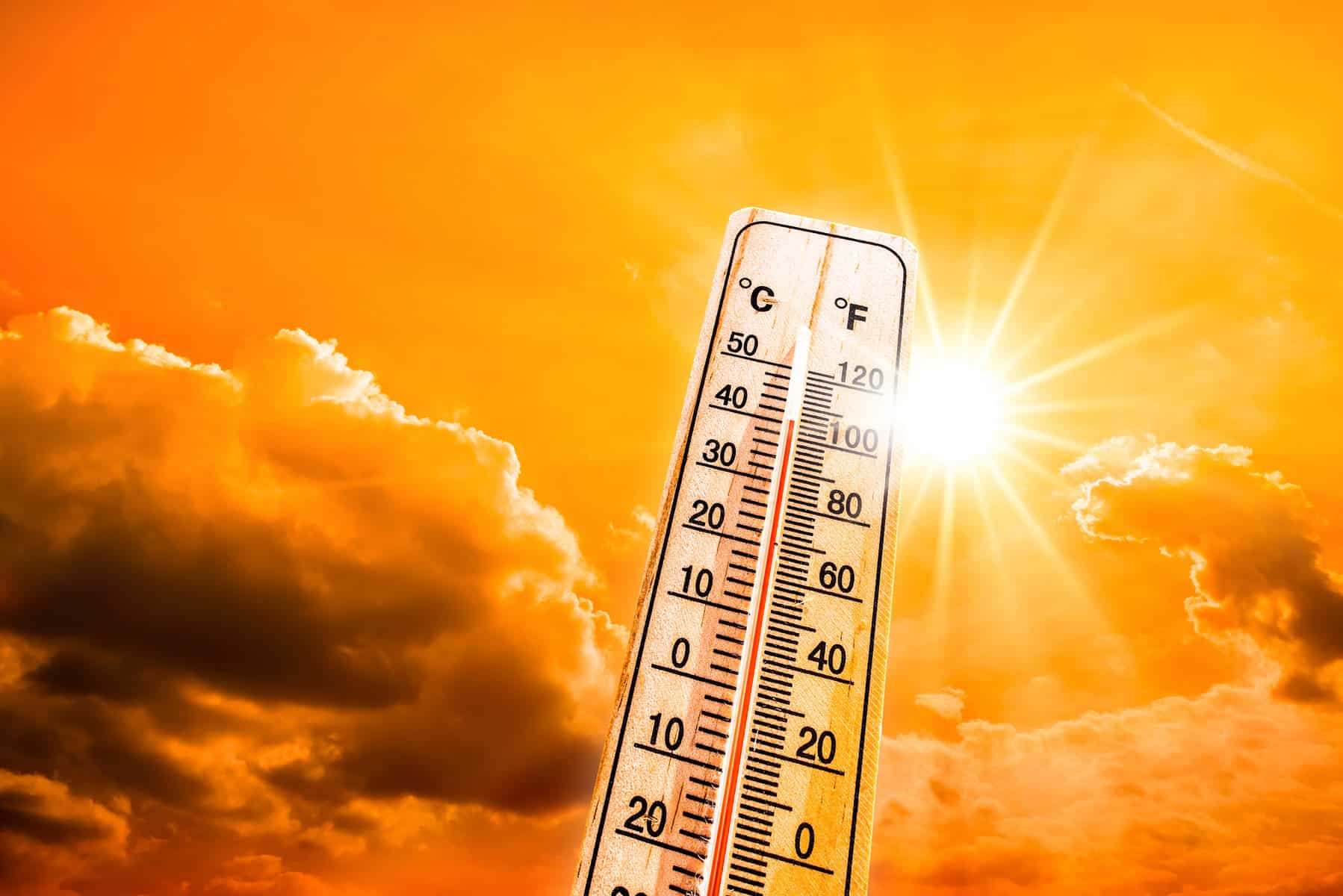Thailand’s Meteorological Department has reported that the Kingdom should brace for another sweltering summer, with this year’s temperature reaching its highest point in 73 years.
The Thai Meteorological Department (TMD) predicts that Mae Hong Son, Uttaradit, Sukhothai, Tak, and Udon Thani provinces will be this year’s five hottest, with temperatures reaching 44 degrees Celsius or above.
Meanwhile, temperatures in Bangkok are expected to reach at least 40 degrees Celsius on April 27 when the sun’s rays strike the city from a specific angle.
According to Seree Supratid, head of Rangsit University’s Climate Change and Disaster Centre, most sections of the country may expect temperatures to rise by 1-2 degrees Celsius.
He predicted that the plateau areas of Mae Hong Son, Tak, and Lampang, where there is substantial deforestation, will be the hottest, with temperatures ranging from 44.6-44.9 degrees Celsius.
Mr. Seree stated that the country is facing the next twist in the climate crisis: global boiling.
El Nino Affect in Thailand
According to a top TMD official, this year’s hot weather is the result of El Nino, which has a severe global impact, including drought, heavy rains, and new record high temperatures.
The official, who declined to reveal his name, stated that the world’s climate will never be the same again due to the frequent shifts in weather patterns. Until five years ago, the El Nino and La Nina phenomena cycled every 2.5 years. He said it eventually became an annual occurrence.
“We can no longer predict what will happen in the cycle. However, we have already observed odd weather and patterns associated with this phenomenon. “We will see higher temperatures next year, as well as more severe drought and rainfall,” the expert stated.
Mr Seree agreed, adding that the impact of each El Nino might be forecasted for another six years, or two in the case of La Nina.
“We cannot prevent the consequences of climate change, nor can we reverse what has already occurred. “We must live with it,” Mr Seree stated. He also remarked that the window for committing to the Paris Agreement seemed to have expired.
During the signing of this international climate change convention in 2016, 196 countries agreed to commit to keeping global average temperature increases to 1.5C.
“Without cutting the use of fossil fuel, natural gas and coal consumption by half by the year 2030, the ambitious target to control the rising temperature could never be achieved,” he stated.
Five-degree Celsius increase by 2100
“The global average temperature will continue to rise. We anticipate a five-degree Celsius increase by 2100.”
He stated that if all relevant parties took more significant steps to decrease greenhouse gas emissions, it may help limit warming to a total rise of 2.9 degrees Celsius. Increasing green spaces and wetlands is also critical to lowering global temperatures.
Summer temperatures have been so extreme in recent years that the number of deaths from heat stroke has been increasing since 2019. The Public Health Ministry reported 37 occurrences of heat-related deaths last year.
The majority were farmers and outdoor labourers, with 10% having chronic conditions and a history of excessive alcohol intake.
According to Dr. Atchara Nithiapinyasakul, chief of the Department of Health, dangerous groups such as the elderly, individuals living with chronic conditions, those with impairments, and people who are obese should avoid excessive and outdoor activities.
They should avoid heatstroke and dehydration by staying in shaded places and drinking plenty of water, she said. During the high heat index, however, some jobs are unable to avoid exposure to the sun and the resulting heat.
Those whose occupations require them to work in extreme heat reported that it may have an impact on their well-being. As a result, pundits argue that they should receive special consideration and suitable welfare benefits from their employers and the state.
Mr Sophon, a 53-year-old security guard, works at a state hospital’s outdoor parking lot from 6 a.m. to 4 p.m. “I’ve been in this position for five years. I’ve seen the temperature getting hotter in recent years, particularly between 11 a.m. and 1 p.m.
“After 2 p.m., it remains heated due to the hot emissions from the autos. “The weather is hot, but the cars add to the heat,” he explained.
He stated that he drinks a lot of electrolytes and wears a balaclava to keep his skin from burning. However, he stated that such attire is now too uncomfortable due to the intense weather, and that he prefers sunscreen and shade.
“If the heat reaches a dangerous point, I think it would be better if the government could provide more welfare for outdoor workers, or more green space and shaded areas,” he said, adding that there were not enough large trees to protect him and his coworkers.
Mr Somchai, a 31-year-old delivery rider whose job requires him to endure the searing heat, agreed. He claimed he had to ride in direct sunshine for at least five hours each day while wearing a suffocating uniform. Although the bulky clothes protects him from sunburn, it makes it difficult to breathe.
“Some days when the weather is super hot, I feel like I’m going to pass out while riding,” he told me.








